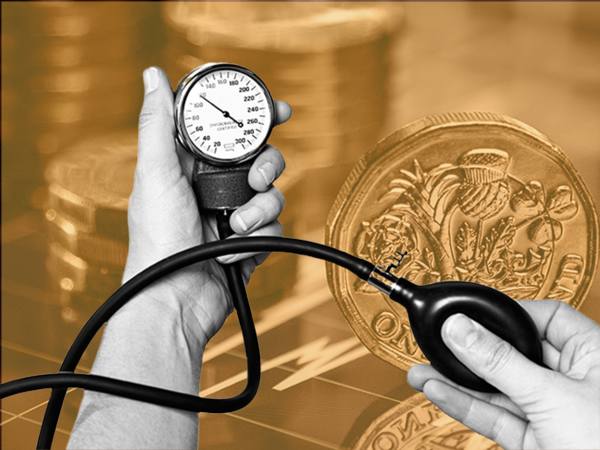- This young investor hopes his investments will grow 4-5% a year so he can buy a first home or retire early
- His gold and silver investments might not provide as much diversification as he hopes
- Even though he has a long-term investment horizon he should still hold cash
Isa invested in funds, direct shareholdings and cash.
Buy first home, retire early, 4-5% annual average total return.
Pat is a student aged 19. He earns roughly £5,000 a year from part-time work, but still expects to have debt worth about £10,000 by the time he finishes university. When he graduates, he hopes to work in asset management and anticipates a starting salary of around £30,000 to £35,000.
“I have been using income from part-time jobs to invest over the past two years,” says Pat. “The amount I contribute to my individual savings account (Isa) varies, although the majority goes in during the summer months when I work full-time. I aim to add £1,500 each year during this period.
"My aim is growth over the long term to help finance a first home or early retirement. I don’t plan to take any income or make withdrawals from my investments until I retire or purchase a home. I do not have a target portfolio value, but aim to make an average annual total return of 4-5 per cent a year after fees, in real terms.
“I have a high risk tolerance and didn't panic sell when markets plummeted in March last year, and at the end of 2020 my investments were up 2 per cent. Because of my age, I have plenty of time to earn back losses and my ideal holding time for an investment is over five years.
"My investments have a high weighting to equities as bonds don’t seem to have any attraction at present. That said, I was extremely sceptical of the market rebound at the end of last year and unprecedented economic stimulus across the world, so I have relatively high weightings to gold and silver. And as I have no property exposure, should I add a real estate investment trust (Reit)?
"Higher yielding shares have produced better gains over the long-term if you reinvest the dividends, so I purchased Diageo (DGE) and iShares EM Dividend UCITS ETF (SEDY) in October last year.
"I am indifferent as to whether I invest via a value or growth-style as both have an attraction in current macroeconomic conditions. That said, I am underweight growth investments because I recently sold Biotech Growth Trust (BIOG) and Polar Capital Technology Trust (PCT), as I thought healthcare and technology markets had become over heated. But I now regret doing this.
"I have increased UK exposure because I think that the bad news is priced into this market and it is cheap compared to others. But I am unsure of where to go from here. Should I rebalance and, if so, which markets and industries should I allocate to?
"The only holding that has fallen more than 5 per cent since I bought it is Lockheed Martin (US:LMT) which, at time of writing, was down 18 per cent. So should I sell it and reinvest the proceeds in other holdings?"
| Pat's portfolio |
| Holding | Value (£) | % of the portfolio |
| WisdomTree Physical Gold (PHGP) | 526 | 7.66 |
| Lockheed Martin (US:LMT) | 518 | 7.55 |
| VanEck Vectors Gold Miners UCITS ETF (GDGB) | 512 | 7.46 |
| iShares EM Dividend UCITS ETF (SEDY) | 491 | 7.15 |
| Caledonia Investments (CLDN) | 484 | 7.05 |
| Wisdomtree Physical Silver (PHAG) | 471 | 6.86 |
| Mercantile Investment Trust (MRC) | 468 | 6.82 |
| Diageo (DGE) | 465 | 6.77 |
| SSR Mining (CAN:SSRM) | 459 | 6.69 |
| Standard Life UK Smaller Companies Trust (SLS) | 447 | 6.51 |
| The Medical Cannabis and Wellness UCITS ETF (CBDP) | 419 | 6.1 |
| AVI Japan Opportunity Trust (AJOT) | 413 | 6.02 |
| J D Wetherspoon (JDW) | 412 | 6 |
| Cash | 400 | 5.83 |
| Bango (BGO) | 380 | 5.54 |
| Total | 6,865 |
NONE OF THE COMMENTARY BELOW SHOULD BE REGARDED AS ADVICE. IT IS GENERAL INFORMATION BASED ON A SNAPSHOT OF THIS INVESTOR'S CIRCUMSTANCES.
Chris Dillow, Investors' Chronicle's economist, says:
It’s great that you’ve started investing early. You should benefit from decades of compounded returns - even a real return of 3 per cent a year would turn £1,000 into over £3,000 in today’s money, by the time you’re in your 50s. And because you will learn a lot early on you should be able to avoid investment mistakes later. Keep a diary recording why you’ve bought and sold stocks, and why you’ve not bought some stocks you’ve thought about. Over time, this will tell you what you systematically get right and wrong.
Not that you should regard all losses as mistakes. Some are unavoidable, however good an investor you are. Try to separate ego from investing: you’re not an infallible genius when things are going well nor an idiot when they are not.
It’s also good that you're reinvesting dividends. Over the long run, this rather than capital growth will deliver most of your returns. Over the last 30 years, for example, £100 invested in the FTSE All-Share index would have grown to over £950 with dividends reinvested but just over £300 if you had taken dividends out.
And investment trusts are a good option, especially ones on decent discounts relative to their own history.
I agree that bonds are unattractive. But I have one quibble – your holdings of gold and silver. The prices of these commodities tend to rise and fall with bond prices because, as bond yields rise and their prices fall, precious metals prices also fall. This is because the opportunity cost of holding gold and silver is greater when bond yields are higher. Gold has fallen in recent weeks as bond yields have risen, fitting this pattern. If bonds do badly, it’s likely that gold and silver will too.
Markets may now be pricing in a lot of good news so are vulnerable. And if they fall, precious metals might be good protection. But you pay a high price for this insurance by losing money if there is not a significant sell off in stocks. Perhaps another way to prepare for a sell off is simply to hold cash.
History suggest that there are very few systematic ways of beating the market over the long-run. There are only really two ways to do this - defensives and momentum - so factor them into your stock picking.
But there’s a bigger problem. You will probably outlive most of your investments because in the long-run most shares fail. Check out Hendrik Bessembinder's, professor of competitive business at Arizona State University's, work on this.
For example, when I was your age, the FTSE 100 index didn’t even exist. When it was formed a year later in 1984 it contained stocks such as MFI, BHS, Ferranti, and British and Commonwealth - all of which failed. And many other index constituents subsequently declined and were taken over.
What look like strong shares today will not continue to be. So it is essential that you have some sort of exit strategy such as stop losses - selling is as important an investment skill as buying.
James Norrington, specialist writer at Investors Chronicle, says:
How we invest is in large part down to individual personalities and your portfolio demonstrates a clear appetite for risk. If you look through our previous portfolio clinic articles you’ll find lots of sound theory and formulaic ways to invest. But that doesn’t mean you shouldn’t invest as you are, with holdings in direct share holdings and other risk assets.
As you have the advantage of time, you could do very well by setting an asset allocation of say, 60 to 70 per cent in equities, 20 to 30 per cent in bonds, and 10 to 20 per cent in assets such as property, gold, private equity and possibly even a small allocation to cryptocurrencies.
You could choose whichever weighting combination appeals to you, implement it via the best and lowest cost funds, and relax. The asset allocation would cushion the worst falls when the stock market is under water. And if you keep paying into your Isa regularly and reinvesting dividends, pound cost averaging and compounding should result in your investments growing faster than inflation and help you to become wealthier.
However, if you like buying shares and have time to consider the idiosyncratic risks faced by individual companies, it can be very rewarding - even if you suffer the odd set-back.
Some portfolio housekeeping is important. If you don't have huge amounts to invest, it can be difficult to invest in various different holdings without the positions being too small to have any meaningful effect on your overall portfolio. And dealing costs would be disproportionately high. But you seem to have up to about £500 in each holding which seems sensible and reasonable at this stage in your life.
Investment trusts are a good way to get broader exposure to different equities, and enable you to take advantage of discounts between their share prices and the net asset value of their holdings.
Some portfolio principles are worth sticking to even if your style of security selection is more adventurous than just buying tracker funds, so you are right to think about asset allocation. Exchange traded funds (ETFs) are a good way to get exposure to precious metals and closed-ended vehicles make perfect sense for property. A global focused Reit would be a good holding because with massive US government stimulus on the way and Chinese growth gathering pace again, strategic real estate is a way to play growth and hedge against resulting inflation.
Although you are young, make sure that you have enough cash to cover emergencies. It gives you a buffer against stock market downside risk, which is an inevitable part of investing, and means that you do not risk having to sell holdings at a loss to fund living costs. That said, holding some riskier direct share holdings is also fine.
When buying shares, ask yourself what strategic risks from competitors, regulators and trends could affect a company's sales. Operational risks such as technology, product trials, supply chains and distribution networks are important too. And consider environmental and safety risk.
Also look at how much a business is operationally geared - what percentage of its costs are fixed - as this affects the sensitivity of its profits to fluctuations in sales revenue. High operational gearing is positive when sales are rising but has the reverse effect on profitability when they fall.
Financial risk includes the working capital cycle and solvency of a company. How reliable are its cash flows, can it meet short-term obligations and are longer term liabilities manageable?
You also need to understand whether a company is expanding profits organically or through buying other businesses. Firms that keep innovating in new markets with new products are far more likely to deliver positive surprises for their shareholders.
How much you pay for shares matters. Valuations for the best quality businesses have been high for a while, especially in sectors like technology and healthcare. There is a difference, however, between running winners and buying in when the price is too high.
Expensive stocks can fall back in value. But if you bought them early enough, the risk of losing money on them is less likely and running holdings allows you to benefit as quality businesses continue to grow.











